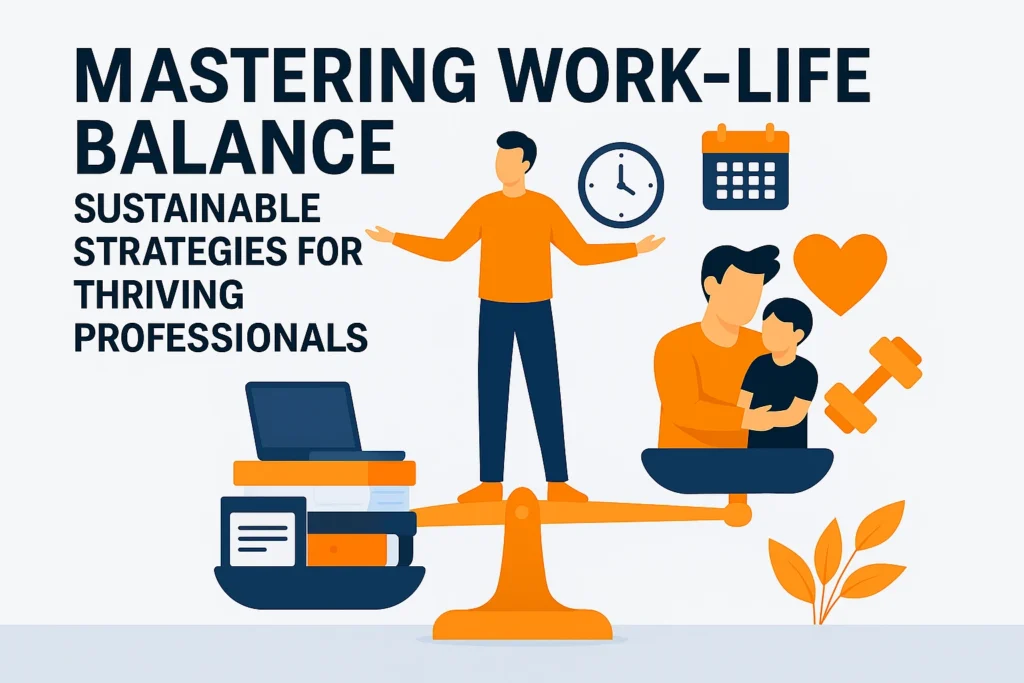Why Work-Life Balance Matters
Maintaining work‑life balance is no longer a luxury, it’s a necessity. Especially post‑COVID, the blurred boundaries between work and home life have heightened stress and burnout. Remote or hybrid setups offer flexibility, yet they demand more disciplined detachment to preserve well‑being Teal+4Marie Claire+4Teal+4arXiv+7KU Business+7Harvard Online+7.
Moreover, younger professionals, Millennials and Gen Z are increasingly valuing balance over salary, with over half willing to accept pay cuts for better quality of life talroo.com+1. Ultimately, organizations that foster flexibility, support, and empathy benefit from higher morale, retention, and productivity The Economic Times+15talroo.com+15Consultport+15.
1. Set Clear Priorities and Boundaries
First, explicitly state what matters most. When things like health, family, or rest rank lower than work in your subconscious, imbalance is inevitable matt.might.net. Next, implement boundaries: establish firm work hours and resist the urge to check emails after hours or on weekends Search Engine Journal+15Architectural Digest+15BetterUp+15.
2. Manage Time Smartly with Proven Techniques
Use structured approaches like Pomodoro (25-minute bursts followed by breaks) to maintain sharp focus without overworking BetterUp. Additionally, reduce multitasking and close distractions, this helps complete tasks efficiently so you can unplug sooner Amy Shamblen Creative+1.
3. Prioritize Self-Care and Unplug Regularly
Moreover, scheduling you-time is essential. Whether it’s mindfulness, fitness, or a hobby, blocking out time for yourself revitalizes your energy and creativity Amy Shamblen Creative. During vacations, be intentional: mute notifications, set expectations, and allow yourself full disconnect New York Post.
4. Leverage Flexibility and Organizational Support
Flexible work arrangements, such as remote options or staggered hours—boost balance and well-being. Studies show such flexibility can increase satisfaction by up to 45% Babbel for BusinessKU BusinessWikipedia. Crucially, organizational policies only work when accessible: real impact flows through well‑being, not the mere existence of programs arXiv+2arXiv+2.
5. Foster a Sustainable and Balanced Career
In high-stress fields like SEO, balance isn’t optional, it’s strategic. A steady work rhythm prevents cognitive overload, supports innovation, and helps maintain performance Teal. Above all, long-term success requires balance, not just bursts of output.
6. Adjust Over Time, Balance Evolves
Finally, understand that balance is dynamic. As priorities, roles, or stress levels shift, it’s wise to reassess and readjust. Likewise, cultural and systemic changes, such as more supportive workplace norms, are essential to sustaining balance TIMEKU Business.

